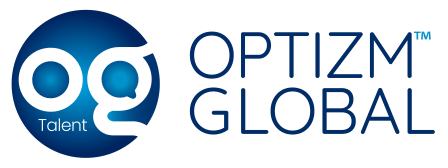Recruiters work in an ever-changing talent acquisition environment that requires them to adapt to the evolving needs of the industry.
As we approach 2024, the recruitment industry is experiencing significant transformations due to technological advancements, market trends, and changing expectations of job seekers.
Recruiters must possess versatile skills to overcome challenges and take advantage of opportunities.
Therefore, this blog will discuss the top five essential skills that every recruiter must have in 2024.
Data literacy and analytics:
In today’s job market, recruiters have started relying on data to make informed decisions. With the help of data analytics, they can recruit the best candidates, assess their performance, and predict future hiring needs.
Using data analysis tools, recruiters can make evidence-based decisions that lead to better results and increased productivity. Reducing risks and increasing the chances of successful hires is crucial, which ultimately improves the organization’s performance and competitiveness.
Data-driven recruiting is essential for recruiters as it enables them to make informed decisions and improve their hiring processes. By analyzing recruiting data, recruiters can identify patterns, trends, and areas that need improvement.
They can evaluate the effectiveness of job descriptions, identify the best sourcing channels for candidates, and detect any potential biases in the recruiting process. This information can help recruiters refine their methods and achieve better hiring results.
Tech savviness:
Tech savviness refers to the ability to use various technology tools and platforms essential for current recruiting methods. It includes knowledge of application tracking systems (ATS), job boards, social media platforms, video interviewing software, candidate relationship management (CRM) systems, and artificial intelligence (AI) technologies for resume screening and matching.
It’s important to be tech-savvy because technology has transformed how recruiters source, engage and assess applicants. Tech-savvy recruiters can use these technologies to speed up recruiting procedures, access a larger pool of prospects, and improve the candidate experience.
They can, for example, use AI-powered chatbots to communicate with prospects, automate repetitive operations, such as resume screening, and analyze the effectiveness of recruiting initiatives using data analytics.
Adaptability and Flexibility:
Recruiters must possess the crucial traits of adaptability and flexibility to navigate the dynamic and ever-changing world of talent acquisition. They should be able to react quickly to market developments, changes in corporate objectives, and shifts in applicant preferences. It includes changing sourcing methods, adjusting recruitment procedures, or adopting new technology and methodologies.
The ability to adjust and be flexible is vital for recruiters to remain agile and responsive in a fast-paced setting. It allows them to customize their approach to the evolving demands of candidates and hiring managers, resulting in a seamless recruitment process. In a rapidly changing employment market, recruiters who adapt swiftly are better positioned to attract top talent and drive organizational success.
Emotional intelligence and relationship building:
Recruitment is a people-oriented profession that values emotional intelligence and relationship-building abilities. To develop meaningful connections with applicants, hiring managers, and stakeholders, recruiters must display empathy, active listening, and strong communication skills.
Cultivating good connections promotes trust, cooperation, and a pleasant applicant experience throughout the recruiting process.
Building solid relationships is essential for effective recruiting. Recruiters with vital emotional intelligence can successfully engage with applicants, sympathize with their experiences, and solve their problems.
Furthermore, they can work successfully with hiring managers and stakeholders, understand their requirements and preferences, and serve as strategic partners in recruiting.
Strategic thinking and Problem-solving:
Strategic thinking involves having the ability to envision long-term goals, devise plans to achieve them, and anticipate and overcome potential obstacles. Recruiters must strategically align their talent acquisition strategies with the organization’s objectives, anticipate future talent needs, and provide proactive solutions to recruitment challenges.
The significance of strategic recruitment lies in its ability to proactively acquire talent and identify and address emerging skill gaps before they become significant issues. Strategic recruiters can also predict changes in the labor market and industry trends, helping businesses stay ahead of the competition in attracting and retaining top talent.
Additionally, good problem-solving skills enable recruiters to quickly overcome challenges, address recruitment difficulties, and streamline processes to achieve desired outcomes.
In Conclusion
In 2024, the recruitment journey is about more than just filling job vacancies. It’s about establishing powerful connections, driving organizational growth, and shaping the future of work. By embodying the essential skills and embracing a spirit of continuous improvement, recruiters can survive and thrive in the dynamic and highly competitive landscape of talent acquisition.
They can make a lasting impact in the ever-changing world of employment by taking bold actions and making assertive decisions.





